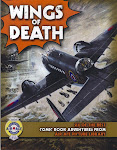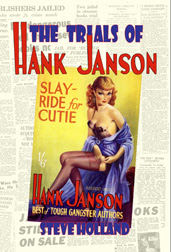The manuscript of this book was smuggled out of the Philippines in a submarine during the Japanese occupation and was suppressed by the War Department in Washington for the duration of the war.
__It tells excitingly of a rearguard action fought by guerrillas who never surrendered until the Americans came back again. It also tells the moving story of a fiery and beautiful girl who defied her pro-Japanese parents to join her lover in his hideout in the hills.
 Edilberto Kaindoy Tiempo was a Filipino author, born in Maasin, Philippines, 1913. In 1940 he joined the English Department of Silliman University in Dumaguete City where he had been a student and editor of the student paper. The war closed down the University temporarily and, in 1946, Tiempo travelled to America. He obtained his M.F.A. from the University of Iowa and was a Guggenheim Fellow, studying Literary Criticism at the University of Denver, where he obtained his Ph.D. in English in 1958.
Edilberto Kaindoy Tiempo was a Filipino author, born in Maasin, Philippines, 1913. In 1940 he joined the English Department of Silliman University in Dumaguete City where he had been a student and editor of the student paper. The war closed down the University temporarily and, in 1946, Tiempo travelled to America. He obtained his M.F.A. from the University of Iowa and was a Guggenheim Fellow, studying Literary Criticism at the University of Denver, where he obtained his Ph.D. in English in 1958.Ed Tiempo and his wife, poet, critic and novelist Edith Lopez Tiempo (b. Bayombong, Philippines, 1919), spent four years studying literature and creative writing under Paul Engle in the Iowa Writers' Workshop. After graduating in 1962, they returned to the Philippines where they founded the Silliman National Writers Workshop along the lines of the Iowa Writers Workshop, which became the longest running annual writers' workshop in Asia. According to the Silliman University website: "For the next forty years the Tiempo name would loom large in the English Department at Silliman as he and his wife established a tradition in excellence in creative writing and the teaching of literary craft which continues to this day."
During sabbaticals to the United States in the 1960s, he was a visiting professor at Western Michigan University (1963-64, 1965-66) and Wartburg College (1964-65) but always returned to Silliman University, where he was a department chair (1950-69), graduate school dean, vice-president for academic affairs and writer-in-residence. His writings won many awards, including the Cultural Center of the Philippines Prize, Palanca Award, the National Book Award, and a prize in the U.P. Golden Anniversary Literary Contest.
Tiempo died on 21 September 1996, his last novel (Farah) published some years posthumously. The Tiempos had two children, daughter Rowena and son Maldon.
Novels
Watch in the Night. Manila, Archipelago Publishing House, 1953; revised as Cry Slaughter, New York, Avon, 1957; London, Allan Wingate, 1959.
More Than Conquerors. Manila, P. B. Ayuda, 1964; revised, Quezon City, New Day Publishers, 1981.
To Be Free. Quezon City, New Day Publishers, 1972.
Cracked Mirror. Quezon City, New Day Publishers, 1984.
The Standard-Bearer. Quezon City, New Day Publishers, 1985.
Farah. Quezon City, New Day Publishers, 2001.
Collections
A Stream at Dalton Pass, and other stories. Manila, Bookmark, 1970.
Finalities. A novelette and five short stories. Quezon City, New Day Publishers, 1982.
Rainbow for Rima. Quezon City, New Day Publishers, 1988.
Snake Twin and other stories. Quezon City, New Day Publishers, 1992.
The Paraplegics and five short stories. Quezon City, Giraffe Books, 1995.
Others
Philippine Writing. An anthology, edited by T. D. Agcaoili, with an introduction by Edith L. & Edilberto K. Tiempo. Manila, Archipelago Publishing House, 1953.
College Writing and Reading, with Edith L. Tiempo. 1964.
Introduction to Literature, with Edith L. Tiempo & F. A. Bernard. 1976.
Silliman University, 1901-1976, with Crispin C. Maslog & T. Valentino Sitoy, Jr. Dumaguete City, Silliman University, 1977.
Literary Criticism in the Philippines and other essays, with an introduction by Joseph A. Galdon. Manila, De La Salle University Press, 1995.
(* A lengthy tribute to Tiempo can be found here, also the source of the above photo.)
























































They are great !
ReplyDeleteI would like to read some of then .
I have read some of then , But they don't get it in.
ReplyDeletei have it some.
ReplyDeleteI still hadn't read one of the collection but sounds good.
ReplyDelete